In the long battle against cancer, human beings have moved from chemotherapy and radiation to targeted drugs, and now to cell-based therapies.
Among these innovations, CAR-T cell therapy has become a game changer — not only for its scientific boldness but also for the remarkable clinical results it has achieved.
So, what exactly is CAR-T therapy? And how close is it to becoming available for everyone?
Ⅰ. What Is CAR-T Therapy?
CAR-T stands for Chimeric Antigen Receptor T-cell therapy.
In simple terms, it means reprogramming a patient’s own immune cells to fight cancer.
Here’s how it works:
-
T-cell collection: Doctors extract T cells from the patient’s blood. These are the body’s natural “soldiers” that detect and destroy abnormal cells.
-
Genetic modification: In the lab, scientists equip these cells with a special “navigation receptor” — the CAR — which helps them recognize cancer cells precisely.
-
Expansion: The modified T cells are multiplied in large numbers to form a powerful anti-cancer army.
-
Reinfusion: Finally, they are infused back into the patient’s body to seek out and eliminate cancer cells.
Unlike traditional drugs that work externally, CAR-T uses the body’s own immune system as the weapon, turning it into a “living drug.”
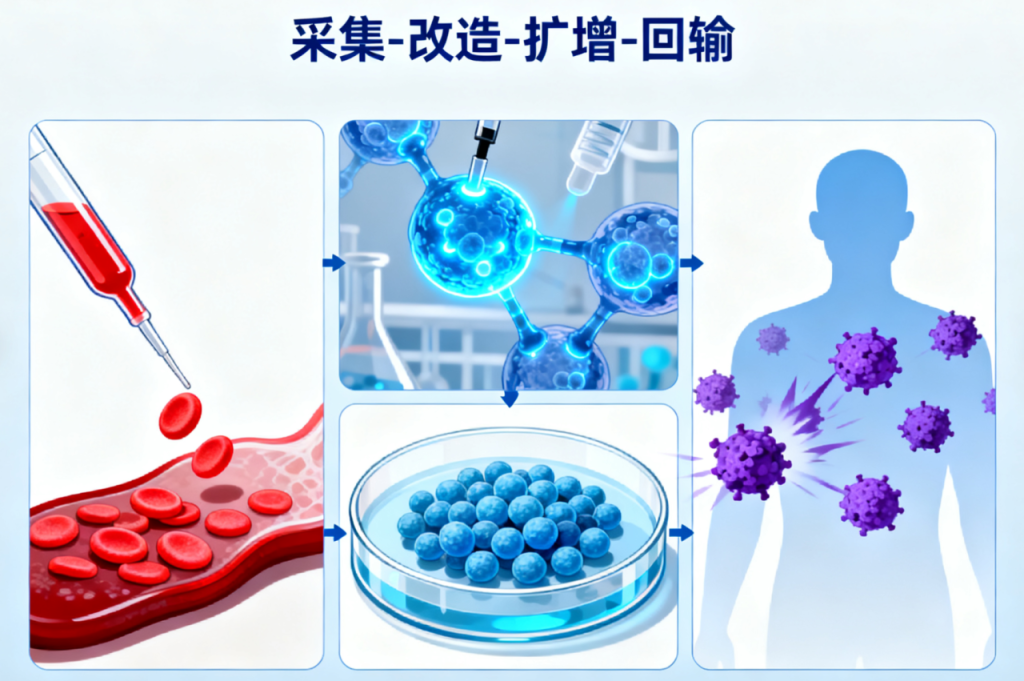
Ⅱ. CAR-T Development in China
Although China entered the CAR-T field later than Western countries, its progress has been remarkably fast.
Today, CAR-T therapy has achieved significant results in treating blood cancers such as leukemia and lymphoma.
-
Outstanding efficacy: In patients with relapsed or refractory leukemia, remission rates have exceeded 80%, with some remaining cancer-free for years.
-
Rapid innovation: New versions like Fast CAR-T can be produced within 24 hours, while Universal CAR-T aims to lower cost and improve accessibility.
-
Clinical readiness: Leading hospitals including Peking Union Medical College Hospital and Fudan University Cancer Center have established complete CAR-T treatment platforms.
China is now transforming from a “follower” to a “global innovator” in this field.
Ⅲ. Beyond Cancer: CAR-T in Autoimmune Diseases
CAR-T is also showing promise beyond oncology.
Recent studies suggest it could help treat autoimmune diseases such as systemic lupus erythematosus (SLE) and scleroderma.
In these conditions, the immune system mistakenly attacks the body’s own tissues. CAR-T therapy can “reset” the immune system by eliminating faulty immune cells, allowing it to rebuild tolerance and restore normal function.
This opens a completely new direction — using CAR-T to retrain the immune system, not just to kill cancer.
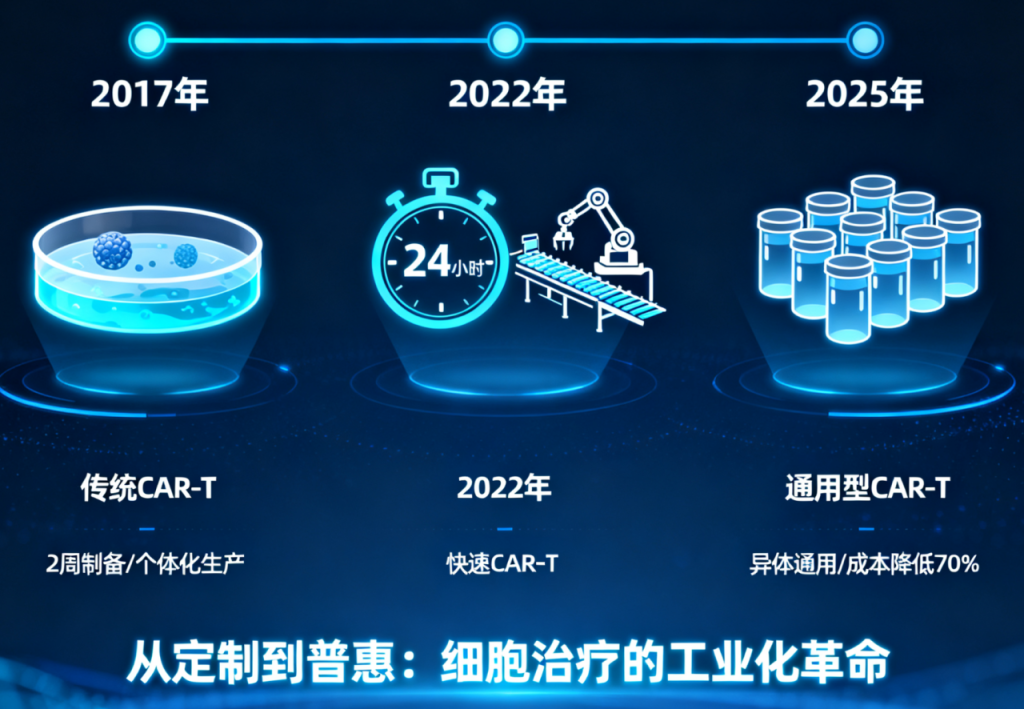
Ⅳ. The Cost: Still Expensive, but Hope Is Rising
CAR-T treatment is currently one of the most expensive medical therapies in the world.
In China, two CAR-T products — Equecabtagene Autoleucel and Relmacabtagene Autoleucel — cost around 1.2 to 1.3 million RMB (≈$165,000–$180,000) per treatment.
This price covers only the drug itself. The full treatment also includes:
-
Cell collection and modification
-
Preconditioning chemotherapy
-
Hospitalization and intensive monitoring
-
Management of potential complications (such as cytokine release syndrome or neurotoxicity)
However, several factors are driving costs down:
-
Local governments in Shanghai, Jiangsu, and Zhejiang have included CAR-T in supplementary health insurance programs;
-
Commercial insurance providers are beginning to cover CAR-T therapy;
-
Domestic CAR-T manufacturing and raw material production are accelerating, reducing dependence on imported components.
These trends suggest that CAR-T therapy could soon become more affordable and widely available.
Ⅴ. A Balanced View: Not a “Miracle Cure”
CAR-T is not suitable for all patients.
Currently, it shows the best results in blood cancers, while its effectiveness in solid tumors (such as lung, liver, or pancreatic cancer) remains limited.
Possible side effects include:
-
Cytokine release syndrome (CRS): fever, low blood pressure
-
Neurotoxicity (ICANS): confusion, speech difficulty
Therefore, treatment should always be conducted in qualified hospitals under the supervision of an experienced medical team.
Ⅵ. Conclusion
CAR-T therapy represents a historic leap in medicine — from external treatment to self-healing through cellular reprogramming.
It reflects the future of personalized, precision medicine.
While the cost is still high today, continuous innovation, local production, and expanding insurance coverage are making this once-unimaginable treatment accessible to ordinary patients.
For those battling blood cancers, CAR-T may not just be a therapy —
it could be the light at the end of the tunnel.
Eltromin 25/50 Eltrombopag
Enatinib 4/10 Lenvatinib
Lynparib Olaparib
Coltinib Upadacitinib
Alvonib Osimertinib
Techno
Well-known pharmaceutical company in Bangladesh:https://www.radiantpharmacil.com
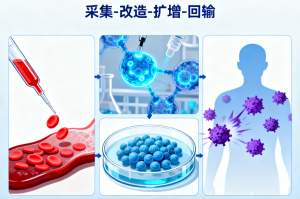


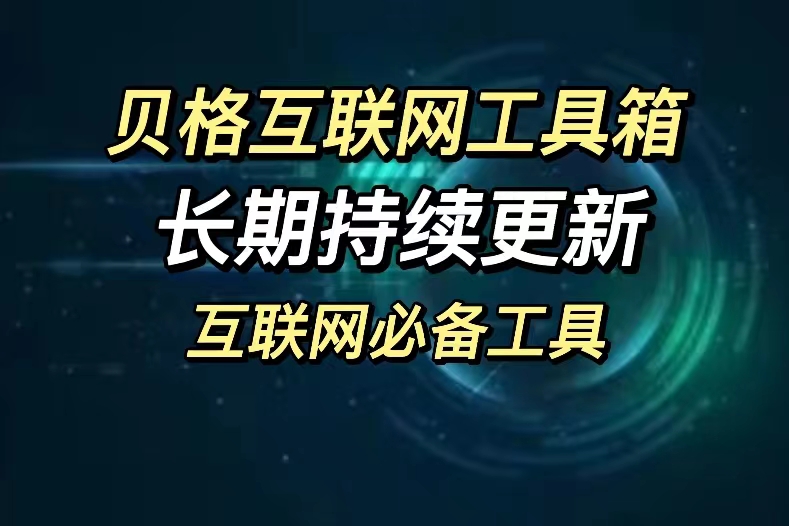
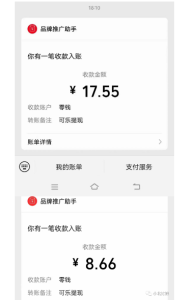

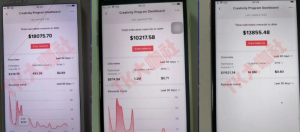
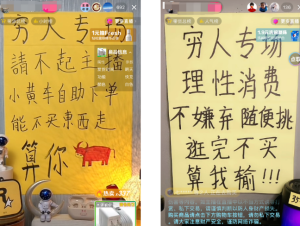

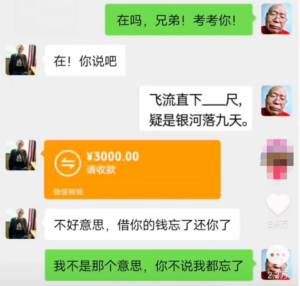






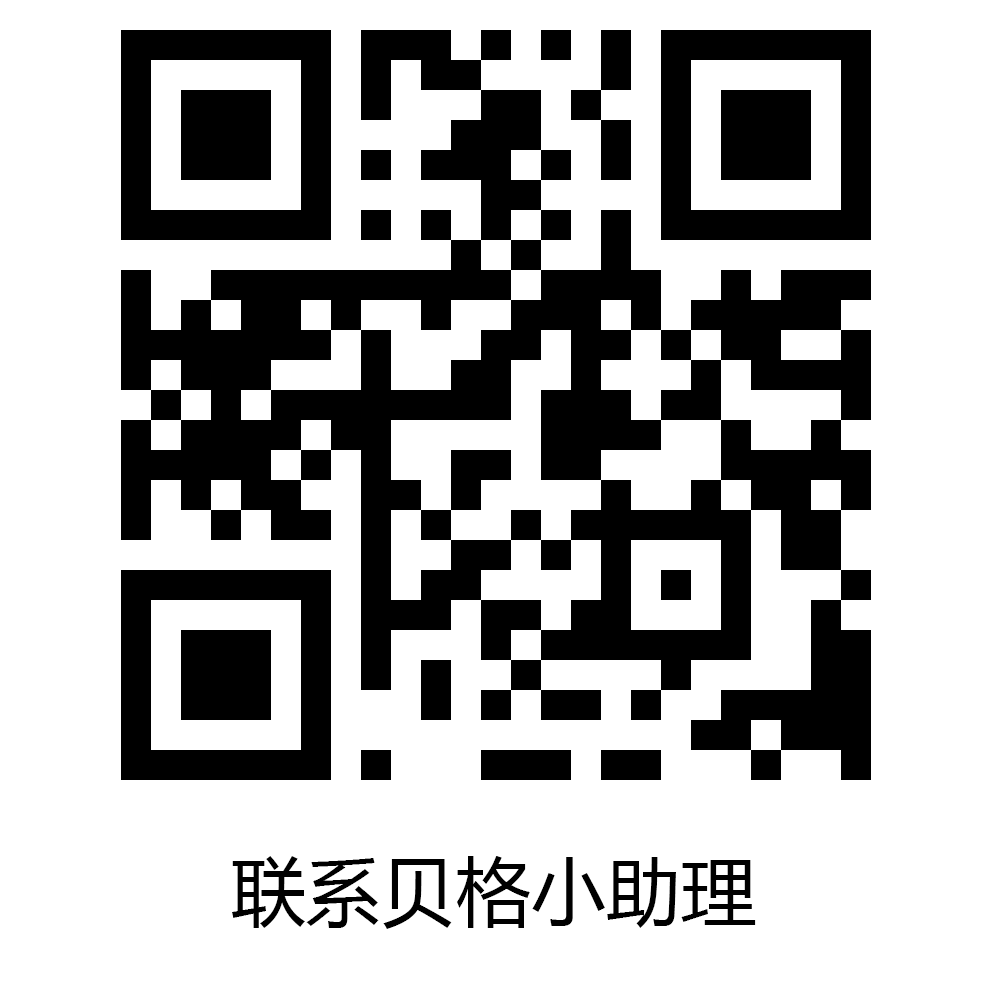
暂无评论内容